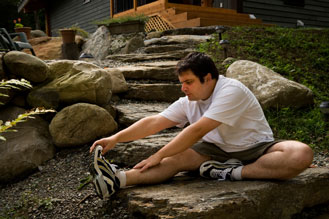Male hypogonadism, or low testosterone, affects approximately 40% of men who are more than 45 years of age and 14 million American men overall.
Testosterone is one of the most important circulating hormones in men. In adults its effects stretch far beyond bodybuilding, muscle growth and increased strength and include a variety of effects on the brain, kidneys, bones, and liver. In the brain testosterone influences libido, sex drive, and mood. In the kidney it stimulates the production of Erythropoietin (EPO) and red blood cells. It accelerates linear growth in bone tissue and also stimulates synthesis of serum proteins in the liver.
Symptoms of hypogonadism include decreased libido, low energy, erectile difficulties, and decreased enjoyment of daily activities. Even worse, hypogonadism has been linked with other chronic conditions including obesity, diabetes, hypertension, osteoporosis, and hyperlipidemia. In fact, men with low testosterone levels and no other risk factors have been shown to be twice as likely to develop conditions like metabolic syndrome and diabetes. Furthermore, hypogonadal men have been shown to have decreased bone mineral density when compared to normal men. Finally, a recent male aging study found hypogonadal men to have a 40% greater risk of death compared to their counterparts with normal testosterone.
Diagnosing hypogonadism involves a blood test that checks for low testosterone levels plus a screening questionnaire, and can be treated effectively by replacing or adding testosterone through creams, injections, or implantable pellets.
